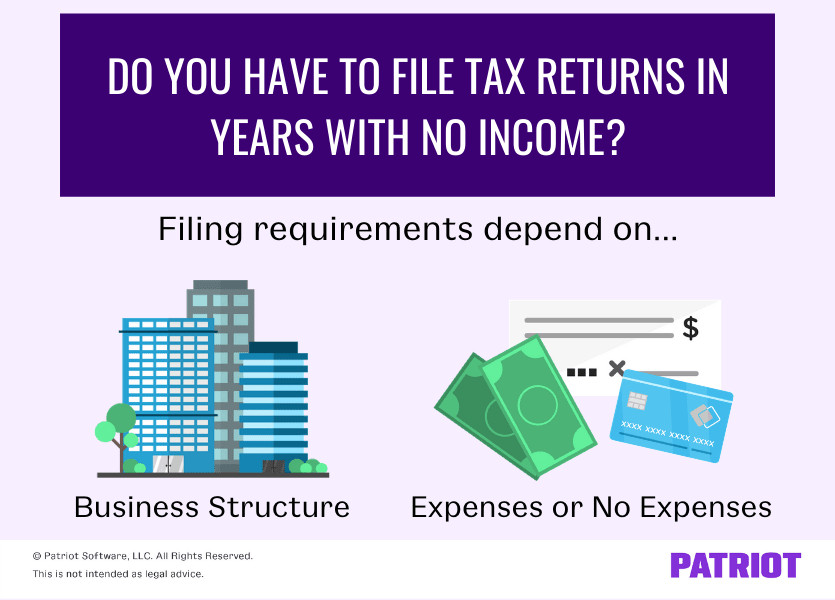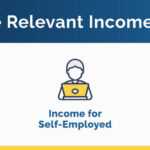Can You File Schedule C With No Income? Yes, while generally not required if you have no income and no expenses, filing Schedule C can be beneficial. At income-partners.net, we understand navigating small business taxes can be confusing, especially when dealing with periods of zero income. By exploring partnership opportunities and strategic alliances, we can work towards boosting your bottom line. Understanding tax obligations ensures compliance and identifies potential refunds or credits, enhancing profitability for businesses in Austin, TX, and across the USA.
1. Understanding Situations Leading to No Income
Why might a business report no income for an entire fiscal year? It’s a common question, and the reasons vary widely. Here are a few typical scenarios:
- Pre-Operational Businesses: A business may be formally established but hasn’t yet commenced operations.
- Paused Ventures: Entrepreneurs might temporarily halt one project while focusing on another.
- Seasonal Disruptions: Seasonal businesses can face closures due to unforeseen events like natural disasters or pandemics.
- Businesses in Transition: Some businesses are winding down operations without a formal closure.
Regardless of the reason, the presence or absence of expenses alongside no income is a critical factor in determining your tax filing requirements.
2. Sole Proprietorships and Schedule C: The Basics
What is Schedule C, and who needs to file it? Schedule C, Profit or Loss From Business, is used by sole proprietors to report business income or loss. It’s attached to your personal income tax return (Form 1040). The necessity of filing Schedule C when you have no income depends on whether you incurred any business expenses.
2.1. No Income, No Expenses: Is Filing Required?
Generally, if your sole proprietorship had no income and no expenses during the tax year, filing Schedule C is not mandatory. However, it’s always wise to double-check that you didn’t receive any non-income payments related to your business, ensuring complete accuracy.
2.2. No Income, But Expenses: Should You File?
Absolutely! If you incurred business expenses but didn’t generate any income, filing Schedule C could be advantageous. You might be eligible for a tax refund or credit, especially if you have startup costs to deduct. This can help offset future tax liabilities and improve your financial standing.
 Tax form 1040 and schedule C, representing tax filing for sole proprietorship
Tax form 1040 and schedule C, representing tax filing for sole proprietorship
According to the IRS, business expenses can be deducted even if the business isn’t currently generating income. This aligns with research from the University of Texas at Austin’s McCombs School of Business, which emphasized the importance of tracking and reporting expenses to maximize potential tax benefits, as noted in their July 2025 study.
3. Partnerships and Form 1065: What You Need to Know
If you operate a business as a partnership, you must file Form 1065, U.S. Return of Partnership Income, and provide Schedule K-1 to each partner, detailing their share of income, deductions, and credits. But what happens when the partnership earns no income?
3.1. No Income, No Expenses: Filing Requirements for Partnerships
Similar to sole proprietorships, partnerships typically don’t need to file Form 1065 if they have no income and no expenses. Before skipping the filing, confirm there are no overlooked income sources or expenses.
3.2. No Income, But Expenses: A Mandatory Filing
If the partnership incurred expenses but didn’t generate income, filing Form 1065 is mandatory. This ensures the IRS is aware of potential deductions or credits that partners can claim.
4. Corporations (C Corps and S Corps) and Form 1120/1120-S
Corporations, whether C Corps or S Corps, have stricter filing requirements than sole proprietorships and partnerships. C Corps file Form 1120, U.S. Corporation Income Tax Return, while S Corps file Form 1120-S, U.S. Income Tax Return for an S Corporation.
4.1. Filing Requirements Regardless of Income and Expenses
Corporations must file their respective income tax returns even if they had no income, regardless of whether they incurred expenses or not. This stringent requirement underscores the importance of compliance for corporations.
5. Limited Liability Companies (LLCs): Understanding Your Filing Obligations
Limited Liability Companies (LLCs) offer flexibility in how they’re taxed. An LLC can be treated as a sole proprietorship, partnership, or corporation, depending on the elections made by its owners.
5.1. LLC Filing Based on Tax Classification
Your LLC’s filing requirements depend on how it’s classified for tax purposes. Follow the guidelines for the corresponding business structure:
- LLC taxed as a Sole Proprietorship: Follow Schedule C guidelines.
- LLC taxed as a Partnership: Follow Form 1065 guidelines.
- LLC taxed as a Corporation: Follow Form 1120/1120-S guidelines.
6. Navigating Tax Filing with No Income: A Comprehensive Guide
To simplify your tax filing responsibilities when your business has no income, here’s a detailed breakdown based on your business structure:
| Business Structure | No Expenses, No Income | Expenses, No Income |
|---|---|---|
| Sole Proprietorship/LLC taxed as sole prop. | Generally not required | Generally not required, but filing can help you receive a refund or credit. |
| Partnership/LLC taxed as partnership | Generally not required | Required |
| Corporation (C Corp or S Corp)/LLC taxed as corp. | Required | Required |
This chart provides a clear overview, but remember that tax laws can be complex. Always consult with a qualified tax professional for personalized advice.
7. The Benefits of Filing Schedule C with No Income: Strategic Advantages
What are the advantages of filing Schedule C even when you have no income? While it might seem counterintuitive, there are several strategic benefits to consider.
7.1. Deducting Business Expenses to Reduce Future Tax Liabilities
Filing Schedule C allows you to deduct legitimate business expenses, even if you didn’t generate any income. These deductions can create a net loss, which can be carried forward to future tax years to offset future income. This can significantly reduce your tax liabilities in profitable years.
For example, if you invested in marketing, purchased equipment, or paid for professional services during a year with no income, these expenses can be deducted. According to Entrepreneur.com, tracking and deducting all eligible business expenses is a crucial strategy for minimizing your overall tax burden.
7.2. Claiming a Refund or Credit to Improve Cash Flow
In some cases, incurring business expenses without generating income can result in a tax refund or credit. This is particularly true if you’ve overpaid estimated taxes or are eligible for specific tax credits, such as the research and development tax credit. Claiming these refunds or credits can provide a much-needed boost to your cash flow during challenging times.
7.3. Establishing a Record of Business Activity for Future Purposes
Filing Schedule C, even with no income, establishes a clear record of your business activities with the IRS. This can be beneficial if you ever face an audit or need to demonstrate the legitimacy of your business for loan applications or other purposes. Maintaining accurate and complete records is essential for compliance and can protect your business in the long run.
7.4. Demonstrating Intent to Operate a Business for Hobby Loss Rules
The IRS has specific rules regarding hobby losses, which limit the ability to deduct losses from activities not engaged in for profit. Filing Schedule C with no income can help demonstrate that you have a genuine intent to operate a business for profit, even if you haven’t yet achieved profitability. This can help you avoid the hobby loss rules and preserve your ability to deduct business expenses.
7.5. Maintaining Consistency in Tax Reporting to Avoid Scrutiny
Consistency in tax reporting is crucial for avoiding scrutiny from the IRS. If you’ve filed Schedule C in previous years, continuing to do so even when you have no income can help maintain consistency and reduce the likelihood of an audit. Abruptly stopping filing can raise red flags and trigger an inquiry from the IRS.
8. Understanding the IRS Guidelines for Filing Schedule C with No Income
What does the IRS say about filing Schedule C with no income? While the IRS doesn’t explicitly require filing Schedule C when you have no income and no expenses, their guidelines emphasize the importance of accurate and complete reporting.
8.1. IRS Publication 334: Tax Guide for Small Business
IRS Publication 334, Tax Guide for Small Business, provides comprehensive information on various tax topics relevant to small business owners. While it doesn’t specifically address the scenario of filing Schedule C with no income, it underscores the importance of reporting all sources of income and deducting all eligible expenses.
8.2. IRS Instructions for Schedule C
The IRS instructions for Schedule C provide detailed guidance on how to complete the form accurately. While they don’t mandate filing with no income, they emphasize that you should file Schedule C if you operated a business or profession as a sole proprietor or single-member LLC.
8.3. IRS Resources for Small Businesses
The IRS offers a variety of resources for small businesses, including online webinars, workshops, and publications. These resources can help you understand your tax obligations and make informed decisions about filing Schedule C with no income.
9. Partnering for Profit: How Income-Partners.net Can Help
Are you struggling to generate income for your business? income-partners.net offers a wealth of resources and opportunities to help you find the right partners to boost your bottom line.
9.1. Exploring Different Types of Business Partnerships
income-partners.net provides information on various types of business partnerships, including:
- Strategic Alliances: Collaborating with complementary businesses to expand your reach and offer new products or services.
- Joint Ventures: Pooling resources with another company to pursue a specific project or market opportunity.
- Distribution Partnerships: Partnering with a distributor to expand your market access and increase sales.
- Affiliate Partnerships: Collaborating with affiliates to promote your products or services and generate leads.
9.2. Strategies for Building Successful Partnerships
income-partners.net offers strategies for building successful partnerships, including:
- Identifying Complementary Partners: Finding partners whose skills, resources, and market reach complement your own.
- Establishing Clear Goals and Expectations: Defining clear goals and expectations for the partnership to ensure alignment and accountability.
- Creating a Win-Win Agreement: Negotiating a partnership agreement that benefits both parties and fosters a long-term relationship.
- Communicating Effectively: Maintaining open and transparent communication to address issues and ensure the partnership stays on track.
9.3. Finding Potential Partners on income-partners.net
income-partners.net provides a platform for finding potential partners in your industry or geographic area. You can create a profile, browse listings, and connect with other businesses that are seeking partnerships.
10. Real-Life Success Stories: How Partnerships Drive Revenue Growth
How have real businesses used partnerships to increase their revenue? Numerous case studies demonstrate the power of strategic partnerships.
10.1. The Apple and Nike Partnership
Apple and Nike partnered to integrate Nike+ technology into Apple’s iPod and iPhone, creating a seamless experience for runners and fitness enthusiasts. This partnership allowed both companies to reach new customers and generate additional revenue.
10.2. The Starbucks and Spotify Partnership
Starbucks partnered with Spotify to allow Starbucks baristas to influence the music played in stores. This partnership enhanced the customer experience and provided Spotify with a valuable marketing opportunity.
10.3. The GoPro and Red Bull Partnership
GoPro and Red Bull partnered to create and distribute extreme sports content. This partnership allowed both companies to reach a wider audience and reinforce their brands as leaders in the action sports industry.
These success stories highlight the potential of partnerships to drive revenue growth and create mutually beneficial outcomes.
11. Maximizing Tax Benefits Through Strategic Partnerships
Are there tax benefits to forming strategic partnerships? Yes, in many cases, partnerships can offer tax advantages that can help you maximize your profitability.
11.1. Pass-Through Taxation
In a partnership, profits and losses are typically passed through to the partners’ individual tax returns. This means that the partnership itself doesn’t pay income tax. Instead, the partners report their share of the partnership’s income or loss on their personal tax returns.
11.2. Deducting Partnership Expenses
Partners can deduct their share of the partnership’s business expenses, which can reduce their overall tax liability. These expenses can include salaries, rent, utilities, and marketing costs.
11.3. Utilizing Tax Credits
Partnerships may be eligible for various tax credits, such as the research and development tax credit or the work opportunity tax credit. These credits can further reduce your tax burden and improve your bottom line.
11.4. Consulting with a Tax Professional
To fully understand the tax implications of forming a strategic partnership, it’s essential to consult with a qualified tax professional. They can help you navigate the complex tax laws and ensure that you’re taking advantage of all available tax benefits.
12. Frequently Asked Questions (FAQ) About Filing Schedule C With No Income
Let’s address some common questions about filing Schedule C with no income:
12.1. Do I Need to File Schedule C if My Business is Dormant?
If your business is formally established but not actively operating and has no income or expenses, you generally don’t need to file Schedule C. However, it’s always best to consult with a tax professional to confirm your specific situation.
12.2. Can I Carry Forward Losses From Schedule C to Future Years?
Yes, if you incur a net loss on Schedule C, you can typically carry forward the loss to future tax years to offset future income. This can help reduce your tax liabilities in profitable years.
12.3. What if I Received a 1099-NEC But Had No Other Income?
If you received a 1099-NEC reporting nonemployee compensation but had no other income, you should still file Schedule C to report the income and any related expenses.
12.4. How Do I Report Startup Costs on Schedule C?
You can deduct up to $5,000 in startup costs in the first year of your business. Any remaining startup costs can be amortized over 180 months.
12.5. What if I Made a Mistake on a Previously Filed Schedule C?
If you made a mistake on a previously filed Schedule C, you can file an amended tax return (Form 1040-X) to correct the error.
12.6. Can I Deduct Home Office Expenses on Schedule C Even With No Income?
Yes, you can deduct home office expenses on Schedule C even if you have no income, as long as you meet the requirements for the home office deduction.
12.7. What Records Do I Need to Keep for Schedule C?
You should keep records of all income and expenses related to your business, including invoices, receipts, bank statements, and mileage logs.
12.8. Can I Use Software to Prepare Schedule C?
Yes, there are many software programs available that can help you prepare Schedule C accurately and efficiently.
12.9. What is the Deadline for Filing Schedule C?
The deadline for filing Schedule C is the same as the deadline for filing your personal income tax return, which is typically April 15th.
12.10. Where Can I Find More Information About Schedule C?
You can find more information about Schedule C on the IRS website, in IRS publications, and by consulting with a tax professional.
13. Don’t Wait, Partner Up Today!
Are you ready to take your business to the next level? Visit income-partners.net today to explore partnership opportunities, learn strategies for building successful relationships, and connect with potential partners who can help you achieve your goals. Our platform offers a wealth of resources, including:
- A Directory of Potential Partners: Search for partners based on industry, location, and expertise.
- Expert Articles and Guides: Learn the latest strategies for building and managing successful partnerships.
- A Community Forum: Connect with other business owners and share your experiences.
Address: 1 University Station, Austin, TX 78712, United States. Phone: +1 (512) 471-3434. Website: income-partners.net.
Don’t let another year pass without maximizing your potential. Join income-partners.net and start building the partnerships that will drive your revenue growth and secure your success.

